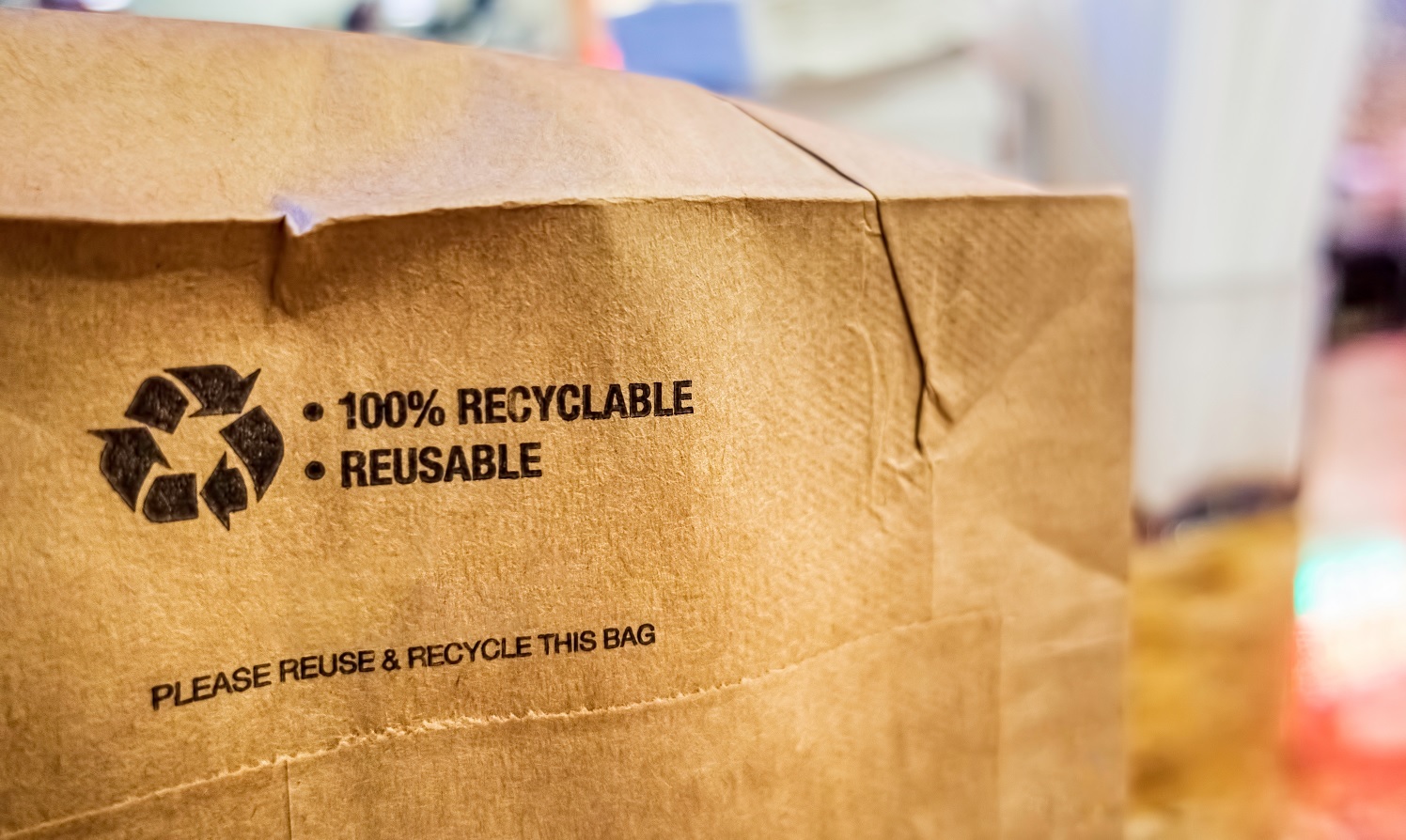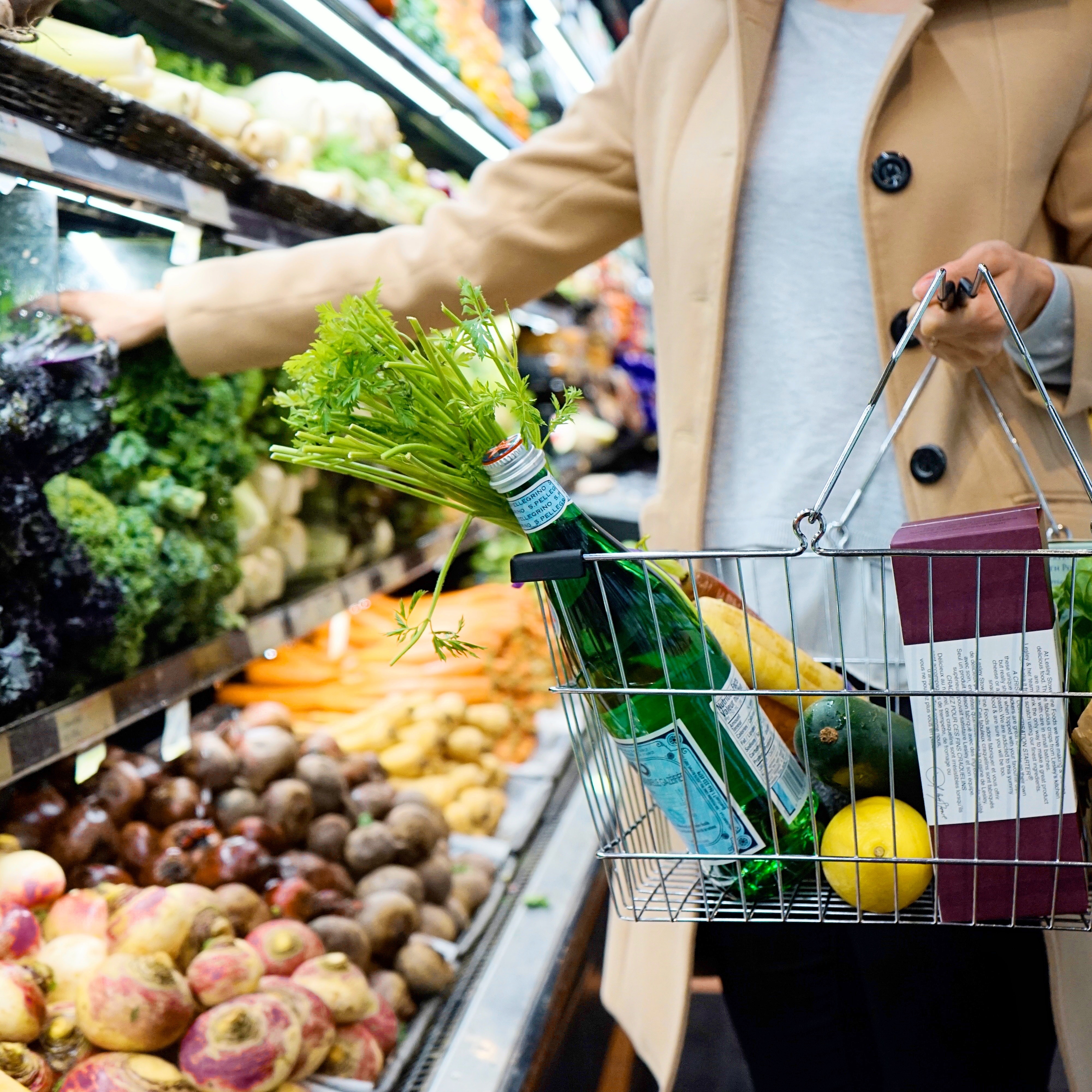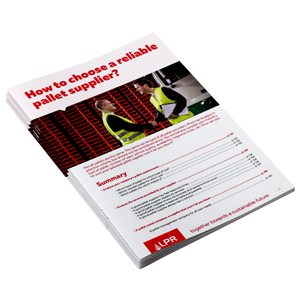Sustainable development has become a key issue for many sectors, especially retail.
Everyone involved in retail, whether they are buyers, suppliers, or logistics providers, have a crucial role to play and are part of an ecosystem that needs to reconsider its processes to achieve greater sustainability and responsibility.
What are the key factors needed to successfully transition to a more sustainable approach without sacrificing the efficiency of the supply chain and still managing to meet consumer expectations?
This article provides an overview of the emerging trends that will enable retailers to adopt sustainable practices to reduce their environmental impact without compromising their overall performance.
Menu:
1 | Innovative packaging solutions
3 | Actions and commitments towards social sustainability
5 | How does LPR support retailers in a more responsible approach?
1. Innovative packaging solutions
Although single-use packaging is still widely used, other types of packaging are gradually starting to replace it.
1.1. Reusable and recyclable packaging
Many manufacturers have increasingly turned to reusable and/or recyclable packaging as an alternative in recent years.
These two approaches contribute to reducing the environmental impact of packaging but require different infrastructures and processes to be deployed effectively:
-
Reusable packaging is, as the name suggests, packaging that is designed to be used multiple times. It can be recycled once it is too damaged or discarded when its raw material is not suitable for recycling.
-
In contrast, recyclable packaging is intended to be recycled systematically after use, meaning that it is processed and used again.
As a result, many FMCG (Fast Moving Consumer Goods) players are developing their own recycling operations.
This is the case with British supermarket Morrisons.
They have deployed a system that allows them to reprocess soft plastics, which are notoriously difficult to recycle and have also committed to recycling and reusing the equivalent amount of plastic by 2025.
Eventually, Morrisons wants to develop larger recycling facilities for other UK retailers as well.
Which material should be prioritised for product packaging?
Here is a non-exhaustive list of packaging that can be recycled:
1. Wood
At LPR, once our PEFC certified wooden pallets become too damaged we transform them into wood pellets, enabling us to reuse this raw material and convert it into energy.
2. Boxes
Cardboard is used for several types of packaging, including cereal boxes, as well as "crate boxes" used to protect furniture and household appliances during delivery.
This packaging can be recycled to create new boxes.
3. Plastic
There are different types of plastic such as Polyethylene Terephthalate (PET) or Polyvinyl chloride (PVC).
While some types of plastic packaging, such as PET, are 100% recyclable, others like LDPE, which is used for garbage and grocery bags, are recycled very little.
Plastics that are recyclable are transformed into pellets and used to produce new products. For instance, a water bottle can be repurposed as stuffing material for a soft toy.

1.2. Zero packaging
Zero packaging is a method that is increasingly being developed in Large Specialised Stores.
In-store refill and pre-fill formats contribute to the elimination of plastic packaging.
Bulk food, for instance, enables consumers to purchase directly using their own bags or containers.
This beneficial practice needs to be adopted by retailers, their suppliers, and consumers in order to continue and expand.
For example:
The Asda Milton Keynes supermarket offers over 70 brand name products in bulk at a dedicated refill area. All products are priced the same (or less) than packaged equivalents.
Adopting this practice provides a competitive advantage and encourages buyers to change their habits by reducing their plastic consumption.
1.3. The evolution of national legislation
Legislation is also changing to push retailers and suppliers to modify their packaging solutions.
For example in the UK
DEFRA (Department for Environment, Food & Rural Affairs) is preparing a law against industrial food waste to be introduced in 2023.
Continuing with rules already applicable to UK households, retailers will now be required to separate their food waste from other waste.
Regulations on retailer liability for non-recyclable packaging have been in force since 2007 and apply to all UK organisations involved in handling and supplying packaging.
This regulation operates on the principle of collective responsibility. Meaning, all companies that produce packaging must contribute to the cost of recycling and reusing it.
For example in France
As of January 1st, 2022, the anti-waste law for a circular economy has required retailers to adhere to several regulations aimed at ultimately eliminating disposable plastic.
-
Supermarkets are required to install sorting bins to enable the collection of purchased packaging after checkout.
-
Sticking a label directly on fruit or vegetables is prohibited unless these labels are compostable and made wholly or partly from bio sourced materials.
-
The manufacture and import of single-use plastic bags is prohibited.
-
Plastic overwrapping of fresh fruit and vegetables weighing less than 1.5 kilograms is prohibited.
Additional regulations are in place to complement this list and achieve the objective of reducing single-use plastics by 20% by the end of 2025, with at least half achieved through reusing and recycling.
2. Eco-stores
The number of sustainable stores has increased significantly in recent years and this trend is intensifying.
These stores are setting new standards by placing sustainability at the heart of their concerns.
This decision is reflected at every level of the supply chain, and not just limited to points of sale:
-
by using sustainable construction materials such as PEFC wood, cork, and cellulose fibres are used to reduce energy loss,
-
by using renewable energies for heating and lighting (like solar panels for example),
-
by favouring recyclable packaging,
-
by using standardised systems wherever possible,
-
by limiting the miles travelled by their goods.
The Rewe store in Wiesbaden, Germany, has implemented sustainable measures across different aspects of the store's operations. The store uses smart cooling and heating technology, powered by 100% green electricity. It also incorporates sustainable packaging and has installed charging stations for electric cars and bicycles.
3. Actions and commitments towards social sustainability
The retail sector must also consider the challenges of social sustainability in their efforts towards sustainable development. Many retailers have already implemented various initiatives towards social sustainability.
3.1. The contribution to the circular economy
Retailers are increasingly sourcing from local suppliers and cooperatives to reduce delivery distances and support the local economy.
For example, in France the Nantes Métropole has suggested that all local food system stakeholders collaborate to form a Territorial Food Project (PAT).
This project aims to reduce the environmental impact of each actor in the food chain through new solutions and practices such as:
-
urban farms,
-
cooperative supermarkets,
-
awareness-raising actions.
As a result, each member contributes to the local economy at their own level (farmer, consumer, transporter, retailer, etc.), to change things.
3.2. The choice of transparency
By ensuring traceability of goods, consumers can gain a more comprehensive understanding of every stage in the supply chain.
Retailers are now ensuring that consumers can find:
-
the origins of the products they consume,
-
the energy and environmental impact generated in the creation of each product.
For example, Italian Aldi stores promote local businesses on Valentine's Day, offering shoppers a selection of certified sustainable products, such as flowers and chocolates.
4. The Net Zero initiative
Carbone 4 has been backing the Net Zero initiative since 2018, which aims to establish a unified benchmark for achieving carbon neutrality across all companies operating in the national territory.
Supported by ADEME (French Environment and Energy Management Agency) and 21 major companies, this project encompasses all sectors of activity and is open to any private sector company that seeks to bring about change.
4.1. The Net Zero initiative project
The Net Zero initiative presents a unified framework that consolidates key principles and tools for implementing a comprehensive corporate climate strategy aimed at achieving global net zero emissions. This framework is available to all stakeholders who seek to “steer their climate actions in a transparent, ambitious, and sincere manner”.
In the wake of the ambitious sustainability goals set by COP 26 in 2021, many retailers are aligning their actions to reduce their carbon footprint and achieve these goals.
4.2. The essential role of technology
Technology plays a vital role in enabling retailers to reduce their carbon emissions.
Through data collection, retailers can enhance their visibility and gain more precise insights into their energy consumption.
Many are already implementing innovative solutions to analyse their data and enhance the energy efficiency of their stores and equipment.
For example, monitoring solutions combining connected objects and multi-measurement applications are being used to track all of the energy consumption of a sales area in real-time.
Manufacturers are able to monitor and map the energy consumption of their stores, in order to define priority actions and intervene quickly in the event of an anomaly.
4.3. An issue that concerns the entire retail sector
The ability of most retailers to achieve their ambitious targets for reducing greenhouse gas emissions is owed to the support of their stakeholders, including suppliers, carriers, partners, and others, who are also striving to adopt sustainable and fair business practices.
4.4. Concrete examples
-
Retailer Walmart has pledged to become a regenerative business, powered by 100% renewable energy in its own operations by 2035.
-
Caprabo presented PureAir Print, a printing system developed by Pureti to permanently reduce the pollution generated by a vehicle during its journey. The company aims to convert contaminated and volatile agents from the environment into oxygen upon contact with the PureAir print.
-
Carrefour plans to become carbon neutral by 2040 and aims to achieve this goal by using 100% electricity from renewable energy sources and reducing its energy consumption by 27.5% by 2030.
5. How does LPR support retailers in a more responsible approach?
5.1. Pallet rental-management: a system based on the circular economy
At LPR - La Palette Rouge, we are specialists in the management of pallet pools and proud to belong to Euro Pool Group, the leading provider of reusable standard packaging logistics services in Europe.
Every day, growers, carriers, processors and retailers benefit from the improved efficiency and environmental benefits of our reusable pallets.
Thanks to our circular economic model, based on the rental and return of pallets, our pallets have a lifespan of at least 5 years, and we manage them until their end of life.
5.2. Pallet pooling: an efficient solution for your supply chain
Choosing pallet pooling is an opportunity to adopt an efficient solution for your supply chain.
This approach not only shields you from the potential hidden expenses that come with buying pallets (such as the costs of storing inactive pallets, extra delivery charges, etc.) but also guarantees access to sturdy, high-quality pallets that are compatible with the automated systems of your supply chain.
5.3. Red pallets are also green pallets
At LPR, we continuously focus on key aspects of supply chain sustainability, such as:
-
Planning and optimisation of transport flows, average distances and truck payloads;
-
The selection and control of all suppliers, subcontractors and carriers;
-
Communication with customers and retailers to deliver and collect the right quantities at the right time;
-
Traceability of pallets (in order to minimise their losses);
-
Repair of damaged pallets still fit for use;
-
The purchase of adjusted quantities of new pallets.
These criteria allow us to provide you with high quality pallets, while reducing your carbon footprint and contributing to your sustainable development objectives.
Conclusion
In summary, various trends enable retailers to work towards sustainable development:
-
swapping single-use packaging for recyclable and reusable packaging,
-
eco-stores that are built with more environmentally friendly materials, use renewable energies, and maintain sustainable practices such as recycling and promoting awareness,
-
actions in favour of social sustainability: promoting local sourcing, communicating transparently,
-
Net Zero initiatives.
A non-exhaustive list that continues to grow in the wake of the objectives defined by COP26.
LPR - La Palette Rouge can assist you in making an immediate contribution to the sustainable development of your business.
Are you ready to rethink your supply chain and opt for a pallet pooling solution?
We’d be happy to help you find the best solution for your business.



